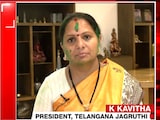The Madras High Court on Thursday urged the Tamil Nadu government to frame widely acceptable guidelines for political meetings and roadshows and also consider separate rules for events held at places of worship, noting that the present draft norms appear overly complicated.
The directive comes in the backdrop of the Karur tragedy, where 41 people were killed in a stampede during a massive political rally held by actor Vijay's Tamizhaga Vettri Kazhagam (TVK). In response, three PILs sought stringent and uniform norms for political gatherings.
The state had previously submitted a draft of the Standard Operating Procedures (SOPs) to be followed during large gatherings to prevent mishaps.
When the matter came up before Chief Justice MM Srivastava and Justice G Arulmurugan, who are representatives of the All India Anna Dravida Munnetra Kazhagam (AIADMK), the TVK said their inputs had not been incorporated into the draft rules.
On behalf of AIADMK, senior advocate Vijay Narayan argued that special norms were essential for events held in religious premises and insisted that the police must give specific, written reasons when rejecting applications for political meetings.
Meanwhile, senior advocate Balasubramanian, who was representing the TVK, said the government must publish a complete list of permitted venues, their seating and standing capacity, and crowd-handling norms on its website so that parties can plan events transparently.
State Additional Advocate General Ravindran defended the draft norms, stating that all parties had been consulted and that venue details had already been uploaded online.
However, the Bench observed that the present guidelines make the permission process resemble "writing an exam and hoping to pass."
The judges stressed that rules must be clear enough to prevent repeated litigations – where every rejection becomes a fresh court case. They added that the state must clearly explain the grounds for denying permission and ensure that citizens understand the process.
The hearing was adjourned to November 28.















